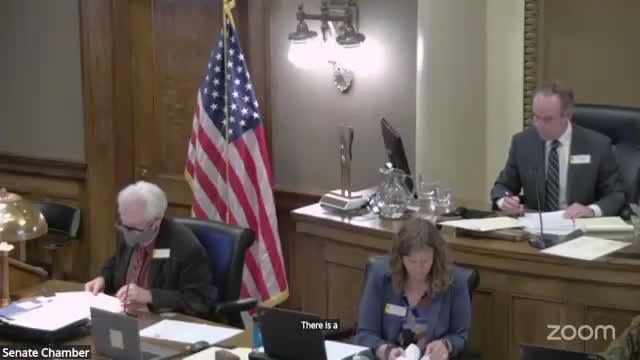Senate declines to advance proposed criminal statute on harmful communications to minors; bill indefinitely postponed
Get AI-powered insights, summaries, and transcripts
Subscribe
Summary
House Bill 189, proposing a new criminal offense for certain patterns of obscene communication with minors, failed to pass the Committee of the Whole after extended debate about drafting, constitutional risk and overlap with existing statutes; the bill was deemed indefinitely postponed.
House Bill 189, which would create a new criminal offense for certain patterns of obscene or sexually explicit communications with minors, was debated vigorously in the Senate Committee of the Whole on Feb. 21 and ultimately failed to pass. The committee recorded a roll-call vote and the bill was indefinitely postponed.
Senator Hutchings, who explained the bill to the chamber, said the measure was intended to give law enforcement an additional tool to prosecute adults who use repeated electronic or written communication to target minors for sexual purposes. He described the proposed statute's elements, including a definition of "obscene" content, a pattern-of-communication requirement, and penalties. Hutchings said the bill was aimed at predators who groom children online and cited an investigative case where binders of online chats were involved.
Multiple members of the judiciary and practicing attorneys on the floor warned that the bill, as drafted, created substantial legal risk. Committee members pointed to three principal problems: (1) the bill created a new definition of "obscene" rather than relying on the state's existing criminal-code definition; (2) the bill's criminal penalty structure was revised on the floor (a committee-of-the-whole amendment replaced tiered penalties with a single felony range up to 20 years and a fine floor), raising concerns about proportionality; and (3) the draft risked sweeping in health-care professionals, educators or parents who communicate with minors in legitimate settings unless narrowly tailored exceptions were added.
Several senators said they supported the bill's intent but not the current drafting. Senators with criminal-law experience warned of constitutional vagueness and overbreadth and said a poorly drafted criminal statute could lead either to guilty people escaping conviction or to wrongful convictions. After floor debate, the Committee of the Whole's roll-call recorded 4 yeas and 26 nays (1 excused) and, pursuant to SR 6-5, the bill was deemed indefinitely postponed.
Sponsors signaled willingness to work with judiciary and law-enforcement stakeholders on a narrower, constitutionally defensible proposal, and several senators urged interim study instead of immediate enactment.
